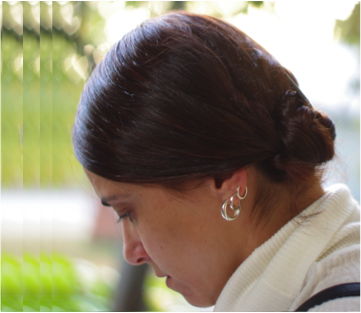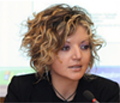About
Contagion processes are widespread in biological and techno-social systems. Everything is contagious: from infectious diseases to rumors, from emotions to innovation and technologies. Habits, memes, knowledge and even debt crisis are "transmissible". The complex dynamics of contagion phenomena is often the result of heterogeneous, dynamical and multi-scale patterns of interactions among the system's elements, thus hindering our understanding and control of the emerging spreading processes. Everything is interconnected: from the system's elements to the interplay of multiple contagion processes themselves. When a disease breaks into a human population, the behavioral response of individuals may crucially alter the disease spread - a response induced by individuals' awareness, fear, and beliefs that spread in the population mediated by social interaction and communication.
Accurate data on hosts and spreaders as well as interaction patterns that underlie contagion processes represent the fundamental input for the study and modeling of these processes. The crucial role of data as the ground for modeling spreading events was evident in two real epidemic events: the outbreak of foot-and-mouth disease affecting livestock in the UK in 2001, and the H1N1 influenza pandemic spreading in human population in 2009. These two major outbreaks benefited for the first time from real-time modeling efforts aimed at providing understanding and guidance for intervention planning. The game changer in both cases was the availability of detailed data on demography, mobility and contact structure of hosts as well as epidemiological data on the ongoing outbreak. The 2009 H1N1 pandemic offered in addition an example of how the implementation of intervention strategies to mitigate the disease spread, such as massive vaccination campaigns, may be compromised by unexpected human behaviors, powered by the circulation on the web and social media of rumors and beliefs on the vaccine safety.
The big data revolution witnessed in the last decade - with the availability of detailed large-scale datasets describing human activities and interactions, financial trends, infrastructure developments, environmental changes, farming practices, etc. - offers an unprecedented opportunity to unravel the complexity of agents behavior and interactions at different scales and for a variety of systems (and of coupled systems), in order to feed data-driven models of contagion processes. The aim is to provide new fundamental understandings and reliable quantitative information allowing for prediction, prevention and control of contagion phenomena.
The satellite meeting will be an opportunity for discussing the recent advances in the study of contagion processes across different scientific domains with a main focus on data-driven modeling approaches. The meeting will be fully interdisciplinary and will bring together researchers from a broad range of disciplines such as physics, mathematics, biology, epidemiology, human and veterinary medicine, computer science, information technologies and social sciences.
Organizing Committee
 Duygu Balcan obtained her PhD in Physics from Istanbul Technical University, Turkey, in 2007. Right after the PhD school, she joined the Center for Complex Networks and Systems Research at Indiana University, Bloomington, IN, as a Research Associate. Since September 2011, she is a Research Scientist at the Complex Networks and Systems Lagrange Lab at ISI Foundation, Turin, Italy. Her main interest is the applications of Statistical Physics to different areas, such as complex networks and dynamical processes on them, combined with multidisciplinary approaches. During her PhD program she worked on biologically motivated problems with a special interest in transcriptional gene regulation. During the years she spent at Indiana University, she worked on spreading processes in spatially structured populations with a specific focus on emerging human infectious diseases. Her current research interests involve mathematical and computational modeling of contagion processes.
Duygu Balcan obtained her PhD in Physics from Istanbul Technical University, Turkey, in 2007. Right after the PhD school, she joined the Center for Complex Networks and Systems Research at Indiana University, Bloomington, IN, as a Research Associate. Since September 2011, she is a Research Scientist at the Complex Networks and Systems Lagrange Lab at ISI Foundation, Turin, Italy. Her main interest is the applications of Statistical Physics to different areas, such as complex networks and dynamical processes on them, combined with multidisciplinary approaches. During her PhD program she worked on biologically motivated problems with a special interest in transcriptional gene regulation. During the years she spent at Indiana University, she worked on spreading processes in spatially structured populations with a specific focus on emerging human infectious diseases. Her current research interests involve mathematical and computational modeling of contagion processes.
 Chiara Poletto completed her undergraduate studies in Physics at the University of Padova, Italy, in March 2005 with a thesis on a statistical physics approach to the protein folding problem, and she continued working on this project with a grant from the University until the end of the year. In January 2006 she started her PhD studies at the University of Padova, that she concluded in December 2008 with a thesis titled "Solvent induced interactions in biopolymers: origin of secondary motifs", focusing on the theoretical study of solvent-protein interactions. Since February 2009 she is a Post Doc researcher at the Computational Epidemiology Lab at the ISI Foundation in Turin, Italy. Her research activity currently focuses on the characterization and modeling of the spatiotemporal spread of emerging infectious diseases. Poletto’s research work makes use of both theoretical and computational approaches and aims at characterizing the complex interplay between demography, individual mobility network and epidemic spreading.
Chiara Poletto completed her undergraduate studies in Physics at the University of Padova, Italy, in March 2005 with a thesis on a statistical physics approach to the protein folding problem, and she continued working on this project with a grant from the University until the end of the year. In January 2006 she started her PhD studies at the University of Padova, that she concluded in December 2008 with a thesis titled "Solvent induced interactions in biopolymers: origin of secondary motifs", focusing on the theoretical study of solvent-protein interactions. Since February 2009 she is a Post Doc researcher at the Computational Epidemiology Lab at the ISI Foundation in Turin, Italy. Her research activity currently focuses on the characterization and modeling of the spatiotemporal spread of emerging infectious diseases. Poletto’s research work makes use of both theoretical and computational approaches and aims at characterizing the complex interplay between demography, individual mobility network and epidemic spreading.  Vittoria Colizza is a Senior Research Scientist at the INSERM, Unitè Mixte de Recherche en Santè 707, "Epidemiology, Information Systems, Modeling", and Université Pierre et Marie Curie, Faculté de Mèdecine, in Paris, France. She also has a joint appointment at ISI Foundation in Turin, Italy. Her research activities focus on the characterization and modeling of the spread of infectious diseases by integrating methods of complex systems with statistical physics approaches, computational sciences, mathematical epidemiology and GIS. Colizza obtained the PhD in Statistical and Biological Physics at the International School for Advanced Studies (ISAS/SISSA), Trieste, Italy, in 2004. After holding a research position for two years at the Indiana University School of Informatics in Bloomington, Indiana, USA, she spent a year as Visiting Assistant Professor at Indiana University and joined the ISI Foundation in Turin in 2007. In the same year Colizza was awarded a Starting Independent Career Grant in Life Sciences by the European Research Council Ideas Program (more info on the EpiFor project webpage). In January 2011 Colizza joined the U707 at Inserm.
Vittoria Colizza is a Senior Research Scientist at the INSERM, Unitè Mixte de Recherche en Santè 707, "Epidemiology, Information Systems, Modeling", and Université Pierre et Marie Curie, Faculté de Mèdecine, in Paris, France. She also has a joint appointment at ISI Foundation in Turin, Italy. Her research activities focus on the characterization and modeling of the spread of infectious diseases by integrating methods of complex systems with statistical physics approaches, computational sciences, mathematical epidemiology and GIS. Colizza obtained the PhD in Statistical and Biological Physics at the International School for Advanced Studies (ISAS/SISSA), Trieste, Italy, in 2004. After holding a research position for two years at the Indiana University School of Informatics in Bloomington, Indiana, USA, she spent a year as Visiting Assistant Professor at Indiana University and joined the ISI Foundation in Turin in 2007. In the same year Colizza was awarded a Starting Independent Career Grant in Life Sciences by the European Research Council Ideas Program (more info on the EpiFor project webpage). In January 2011 Colizza joined the U707 at Inserm.
Program Committee
Iacopo Baussano (Novara University, Italy & Imperial College, UK)
Vincent Blondel (Univ Catholique de Louvain, Belgium)
Pierre-Yves Boelle (INSERM & UPMC, France)
Ciro Cattuto (ISI Foundation, Italy)
Damon M. Centola (MIT, US)
Uno Wennergren (Linkopings University, Sweden)
Marta Gonzalez (MIT, US)
Sebastian Funk (LSHTM, UK)
Bruno Goncalves (Northeastern University, US)
Petter Holme (Umea University, Sweden)
Yamir Moreno (University of Zaragoza, Spain)
Alessandro Vespignani (Northeastern University, US & ISI Foundation, Italy)